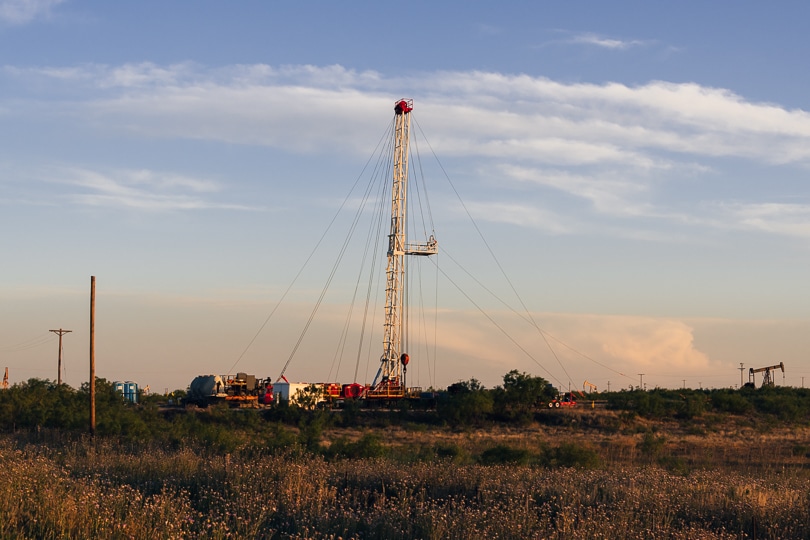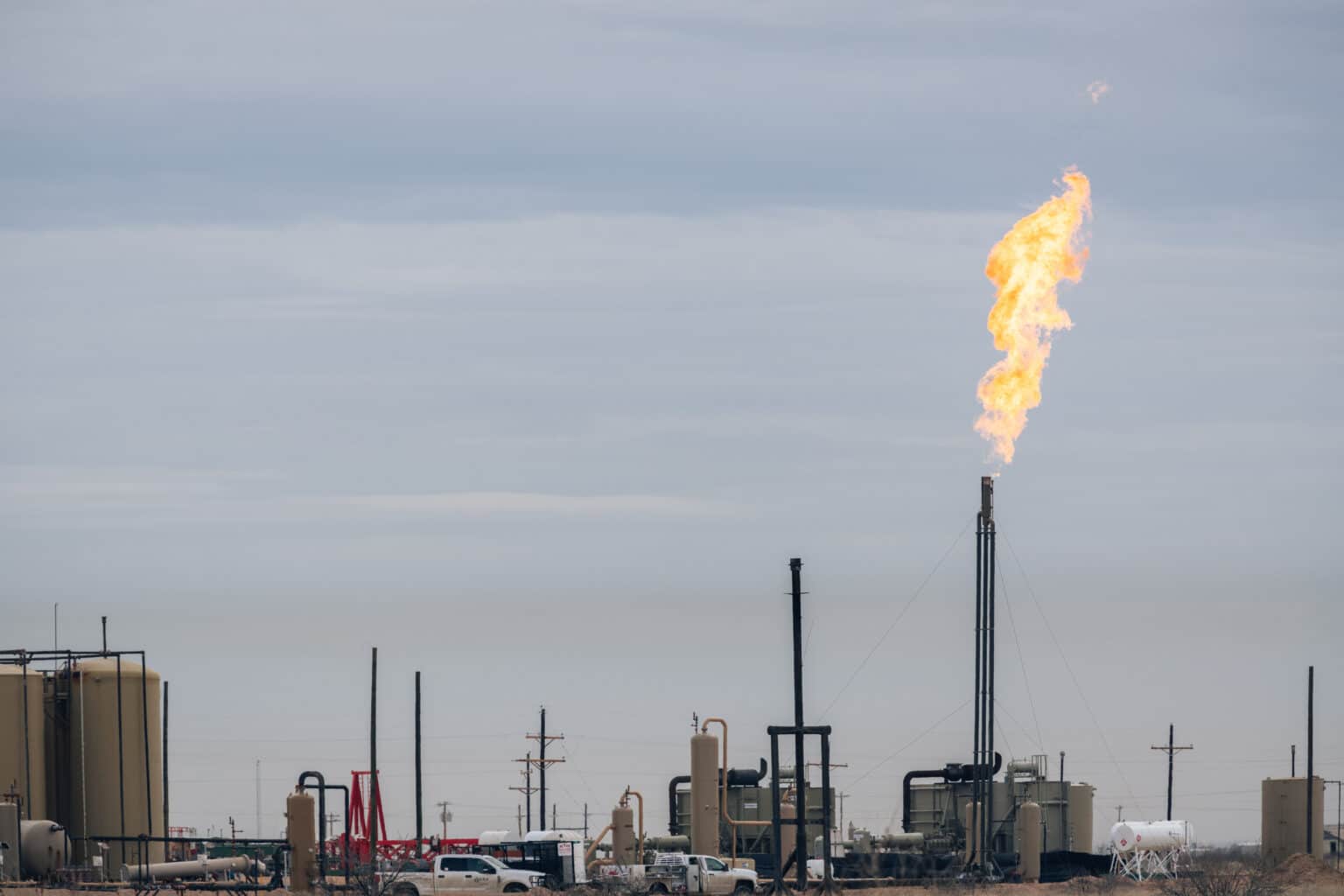The top oil and gas regulators in Texas are not only too cozy with the industry, but they personally profit from the companies they are supposed to oversee, according to a new report.
Vague ethics laws, lack of enforcement, and a campaign finance system soaked in fossil fuel cash all combine to make the Texas Railroad Commission a “captive agency,” argue Commission Shift and Texans for Public Justice, two watchdog groups, in their new report.
The Railroad Commission (RRC) is in charge of regulating the oil and gas industry in the state, and a permissive approach to oversight, particularly when it comes to rampant flaring of methane from oil and gas wells, is well-known. But the new report looks at the extensive personal financial ties between the agency’s top officials and the companies they are supposed to regulate, which creates a business climate with few restraints.
“Too often, the commission has focused on accelerated oil and gas development at the expense of safety, economic vitality, natural resources and the environment,” the report said.

Many of the problems are systemic. For example, the three-member commission of the RRC is elected in statewide races, and campaigns on average can cost more than $1.5 million each. There are no limits on campaign contributions, and the oil and gas industry — the industry that is regulated by the RRC — consistently accounts for 60 to 70 percent of the campaign funds for the candidates. Because the agency and its mission are rather obscure to voters, the oil and gas industry exercises incredible influence over electoral outcomes.
Once elected, the commissioners do not have to recuse themselves from matters affecting the companies that donated to them. “These factors create the conditions for a ‘captured regulatory agency,’ meaning that the industry oversees the agency rather than the other way around,” the authors wrote.
“There is a system set up where the policies on recusal are so vague and the enforcement bar is so high that it’s difficult to really hold the commissioners to account on separating their financial interests from their decision-making,” Virginia Palacios, executive director of Commission Shift and a coauthor of the report, told DeSmog. “The laws are vaguely defined and that is being exploited.”
The report took a close look at Commissioner Christi Craddick, who has deep financial interest in the Texas oil and gas industry. She is a former oil and gas lobbyist, and personal financial disclosures suggest she owns oil and gas assets valued at between $1.5 million and $1.9 million. Some of those assets are in companies in which Craddick owns more than a 5 percent interest, the report found.
“She has stock in oil and gas companies. She personally owns mineral interests in about six counties throughout Texas,” Palacios said. “There are some family companies that she’s part owner or member of, and those family companies also own mineral interests throughout the state of Texas.”
The report looked at five heavy oil-producing counties in Texas and found that Craddick’s family companies owned at least 123 mineral properties as of 2019, valued at more than $1.2 million. Craddick is not required to disclose the extent of her personal share in those family assets.
These financial ties raise questions about her regulatory decisions. For example, in 2018, Craddick cast the deciding vote blocking a modest fine of $10,000 on a company called DCP Midstream for alleged groundwater contamination from a leaky pipe in Fayette County east of Austin. Craddick had personally owned shares in DCP Midstream valued at between $17,520 and $35,874, according to the findings of Commission Shift and Texans for Public Justice. DCP also had contributed $46,500 to the campaigns of all three RRC commissioners over the span of eight years, with Craddick taking in $22,500.
In a statement to DeSmog, Commissioner Craddick said: “In accordance with the Texas Ethics Commission, my personal financial statements are fully disclosed to the letter of the law and publicly accessible. Texas Ethics Commission laws ensure transparency of our public officials and maintain the public’s trust in our ability to appropriately govern, and I take these laws seriously.”

However, the report’s authors and other critics feel current disclosures don’t go far enough to create an appropriate distance between regulators and the regulated. “It’s no surprise Craddick has deep financial ties to the oil industry. From spreading misinformation about the cause of the winter storm power outages to rubber stamping flaring permits, Commissioners have done a better job cheerleading than regulating operators,” Kelly Mitchell, a senior analyst at the corporate watchdog Documented, commented on the report in an email to DeSmog.
The report offers several recommendations to reform the RRC to address the structural problems that inevitably lead to personal financial conflicts of interest and regulatory capture.
For example, before the commissioners take office, they should be required to divest their assets from the industries they regulate, something that is required in neighboring Oklahoma.
“The simplest, most elegant reform would be to adopt the ‘Okie solution,’” Andrew Wheat, research director at Texans for Public Justice and a coauthor of the report, told DeSmog in an email. “Oklahoma imposes reasonable limits on campaign contributions, while requiring its oil and gas regulators to divest from the industry that they regulate. Texas can and should do better.”
Another idea would be to limit campaign contributions. The commissioners are allowed to raise funds throughout their six-year terms. The Commission Shift and Texans for Public Justice report says that fundraising should be limited to only an 18-month period before their election, and also place limits of $5,000 per company per election cycle. Commissioners should also be forced to recuse themselves from matters related to companies that have donated more than $1,000.
Other ideas for reform include improving financial disclosure requirements; currently commissioners check a box when they have an interest in a company valued at “$44,630 or more,” leaving open the possibility that they have a much higher stake in a specific entity than the public realizes. The Texas state legislature should also clarify and strengthen recusal standards, the report says.
Texas has long hosted a large and powerful oil and gas industry. Not only is proper regulation necessary for upholding safety, environmental, and health standards, but the rise of renewables and the climate crisis mean that reform is urgent, argues Palacios. “The energy landscape is shifting in Texas. We’re in an energy transition. We need the Railroad Commission to be acknowledging that, managing it, and fighting for it,” Palacios said. Reforming the commission is “integral to that,” she said, adding, “We can’t get fair and impartial oversight if we have these obvious problems in the structure.”
Subscribe to our newsletter
Stay up to date with DeSmog news and alerts







